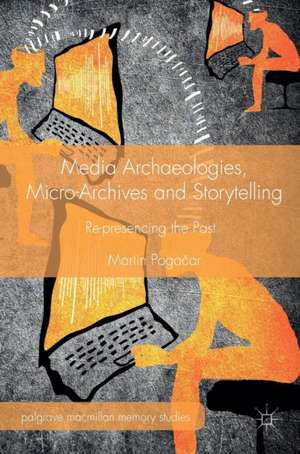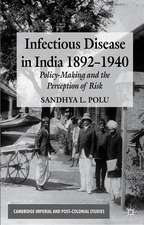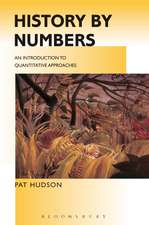Media Archaeologies, Micro-Archives and Storytelling: Re-presencing the Past: Palgrave Macmillan Memory Studies
Autor Martin Pogačaren Limba Engleză Hardback – 12 sep 2016
This book argues that today we live in the culture of the past that delimits our world and configures our potentialities. It explores how the past invades our presents and investigates the affective uses of the past in the increasingly elusive present. Remembering and forgetting are part of everyday life, popular culture, politics, ideologies and mythologies. In the time of the ubiquitous digital media, the ways individuals and collectivities re-presence their pasts and how they think about the present and the future have undergone significant changes. The book focuses on affective micro-archives of the memories of the socialist Yugoslavia and investigates their construction as part of the media archaeological practices. The author further argues that these affective practices present a way to reassemble the historical and relegitimize individual biographies which disintegrated along with the country in 1991.
Din seria Palgrave Macmillan Memory Studies
-
 Preț: 358.89 lei
Preț: 358.89 lei -
 Preț: 191.48 lei
Preț: 191.48 lei - 18%
 Preț: 726.37 lei
Preț: 726.37 lei - 20%
 Preț: 691.81 lei
Preț: 691.81 lei -
 Preț: 357.50 lei
Preț: 357.50 lei - 18%
 Preț: 894.46 lei
Preț: 894.46 lei -
 Preț: 382.36 lei
Preț: 382.36 lei - 15%
 Preț: 644.18 lei
Preț: 644.18 lei -
 Preț: 390.63 lei
Preț: 390.63 lei -
 Preț: 382.57 lei
Preț: 382.57 lei - 15%
 Preț: 701.40 lei
Preț: 701.40 lei -
 Preț: 389.70 lei
Preț: 389.70 lei - 18%
 Preț: 782.42 lei
Preț: 782.42 lei -
 Preț: 387.75 lei
Preț: 387.75 lei -
 Preț: 384.86 lei
Preț: 384.86 lei -
 Preț: 392.37 lei
Preț: 392.37 lei -
 Preț: 387.75 lei
Preț: 387.75 lei - 15%
 Preț: 637.78 lei
Preț: 637.78 lei - 18%
 Preț: 776.22 lei
Preț: 776.22 lei - 15%
 Preț: 583.45 lei
Preț: 583.45 lei - 15%
 Preț: 582.12 lei
Preț: 582.12 lei - 15%
 Preț: 642.51 lei
Preț: 642.51 lei - 15%
 Preț: 585.26 lei
Preț: 585.26 lei - 15%
 Preț: 641.03 lei
Preț: 641.03 lei - 15%
 Preț: 580.68 lei
Preț: 580.68 lei -
 Preț: 388.13 lei
Preț: 388.13 lei -
 Preț: 380.84 lei
Preț: 380.84 lei -
 Preț: 388.72 lei
Preț: 388.72 lei -
 Preț: 385.08 lei
Preț: 385.08 lei -
 Preț: 386.81 lei
Preț: 386.81 lei -
 Preț: 386.81 lei
Preț: 386.81 lei - 15%
 Preț: 641.03 lei
Preț: 641.03 lei -
 Preț: 383.71 lei
Preț: 383.71 lei - 18%
 Preț: 726.69 lei
Preț: 726.69 lei - 15%
 Preț: 582.63 lei
Preț: 582.63 lei -
 Preț: 387.58 lei
Preț: 387.58 lei -
 Preț: 387.75 lei
Preț: 387.75 lei - 15%
 Preț: 699.77 lei
Preț: 699.77 lei - 15%
 Preț: 697.00 lei
Preț: 697.00 lei
Preț: 641.03 lei
Preț vechi: 754.15 lei
-15% Nou
Puncte Express: 962
Preț estimativ în valută:
122.68€ • 133.21$ • 103.05£
122.68€ • 133.21$ • 103.05£
Carte tipărită la comandă
Livrare economică 22 aprilie-06 mai
Preluare comenzi: 021 569.72.76
Specificații
ISBN-13: 9781137525796
ISBN-10: 1137525797
Pagini: 246
Ilustrații: XVIII, 233 p.
Dimensiuni: 148 x 210 x 20 mm
Greutate: 0.44 kg
Ediția:1st ed. 2016
Editura: Palgrave Macmillan UK
Colecția Palgrave Macmillan
Seria Palgrave Macmillan Memory Studies
Locul publicării:London, United Kingdom
ISBN-10: 1137525797
Pagini: 246
Ilustrații: XVIII, 233 p.
Dimensiuni: 148 x 210 x 20 mm
Greutate: 0.44 kg
Ediția:1st ed. 2016
Editura: Palgrave Macmillan UK
Colecția Palgrave Macmillan
Seria Palgrave Macmillan Memory Studies
Locul publicării:London, United Kingdom
Cuprins
1.Introduction: Homo Memonautilus?.- 2.Memory, Media, Technology.- 3.Archaeology, Archiving, Post-socialist Affectivity.- 4.Museums and Memorials in Social Media.- 5.Popular Music Between the Groove and the Code.- 6.Memory in Audiovision.- 7.Conclusion: Unsee and Unforget
Notă biografică
Martin Pogačar is a researcher at the Institute of Culture and Memory Studies, Research Centre of the Slovenian Academy of Sciences and Arts, Slovenia. His research focuses on the intersections of media and memory studies, post-socialist Yugoslavia and nostalgia, digital memorials, archives, and media archaeology. His recent publications include ‘Digital Afterlife: Ex-Yugoslav Pop Culture Icons and Social Media’, in Post-Yugoslav Constellations, Vlad Beronja and Stijn Vervaet (eds.), 2016; ‘Digital heritage: co-historicity and the multicultural heritage of former Yugoslavia’ (Two Homelands: migration studies 39(2), 2014).
Textul de pe ultima copertă
This book argues that today we live in the culture of the past that delimits our world and configures our potentialities. It explores how the past invades our presents and investigates the affective uses of the past in the increasingly elusive present. Remembering and forgetting are part of everyday life, popular culture, politics, ideologies and mythologies. In the time of the ubiquitous digital media, the ways individuals and collectivities re-presence their pasts and how they think about the present and the future have undergone significant changes. The book focuses on affective micro-archives of the memories of the socialist Yugoslavia and investigates their construction as part of the media archaeological practices. The author further argues that these affective practices present a way to reassemble the historical and relegitimize individual biographies which disintegrated along with the country in 1991.

















